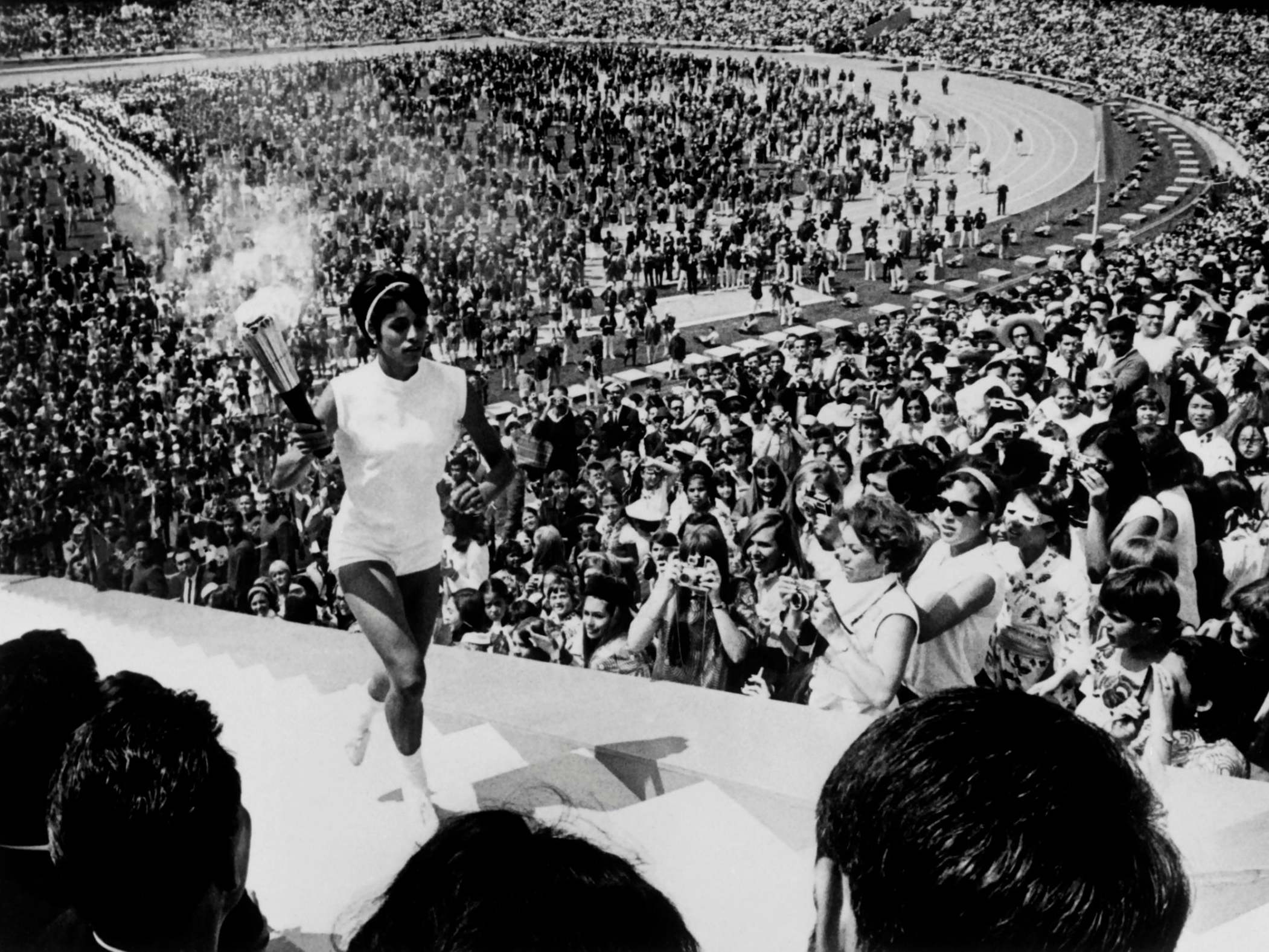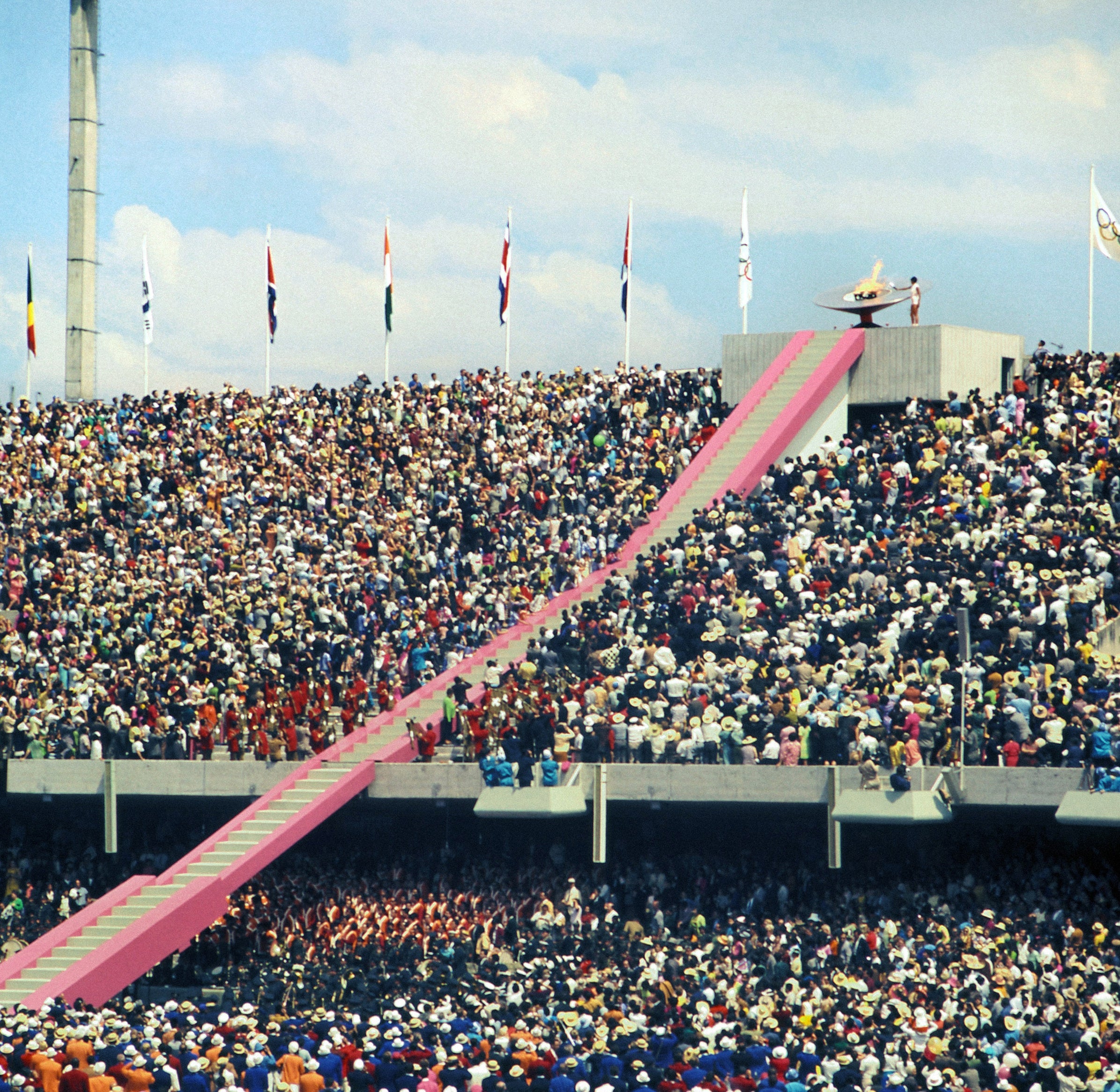Enriqueta Basilio: Mexican sprinter and first woman to light Olympic flame
The track-and-field athlete made Olympic history at the dramatic and highly charged 1968 Mexico City games

The 1968 Summer Olympics in Mexico City are remembered perhaps foremost for the act of protest by two African American track-and-field stars, gold medallist Tommie Smith and bronze medallist John Carlos, who ascended the podium after the 200m run and raised black-gloved fists in the black-power salute as “The Star-Spangled Banner” echoed through the stadium.
There were other moments of drama – such as when Vera Caslavska, a sensational Czech gymnast, stood on the medal podium, bowed her head and looked away during the anthem of the Soviet Union, which had recently invaded her country. Set against a backdrop of political turmoil around the world, including the deadly government repression of a Mexican student movement, the events of the 1968 games reverberated far beyond the world of sports. But it was Mexican track-and-field athlete Enriqueta Basilio, who has died aged 71, who began the event with a milestone in Olympic history by becoming the first woman to light the Olympic flame.
The tradition of the Olympic flame dates to the ancient Olympics in Greece. When Basilio – the daughter of a cotton farmer – opened a newspaper shortly before the 1968 games and learnt that she had been chosen for the honour of lighting the flame that year, she was at once thrilled, nervous and confounded about her selection.
“Maybe it’s because here in Mexico [men and women] have the same rights,” a friend said on her behalf, interpreting Brasilio’s comments for The New York Times. “Maybe it’s because some people [say] she represents the typical Mexican type, a new kind of generation.”
Norma Enriqueta Basilio Sotelo was born in Mexicali, the capital city of the Baja California, in 1948. Her father was also a runner, and many of her siblings were athletically talented. Basilio attended the University of Baja California, hoping to study political science. She was a national champion in the 80m hurdles before competing in the 1968 games.
On 12 October 1968, before a crowd of 100,000 and millions more watching on television, she made her entrance in Estadio Olímpico Universitario in Mexico City, gliding around the track. Her gait was compared variously to that of a gazelle and an antelope.
She then made her way up 90 steps to the platform where the Olympic cauldron stood. The climb up the steps was “no mean feat at this altitude”, The New York Times observed, continuing: “[She] stood there with the torch triumphantly aloft in her right hand. Then she plunged it into the huge saucer and it came alive with fire. Anyone with acutely sensitive ears could then hear a spectral sound. It would have been the ancient Greeks spinning madly in their crumbling mausoleums. They never permitted a woman to come near their Olympic Games but had summary punishment for every female intruder detected. She was promptly tossed off a seaside cliff onto the rocks below. And here was a woman in a focal role a couple of thousand years later.”

Basilio’s performance in the track-and-field events was less glorious. She entered the 400m race, the 100m relay and the 80m hurdles but made it only to the first heat in those competitions. But she had already secured her place in the annals of the Olympics.
“The first woman to light the Olympic flame, the farmer’s daughter presented an image that emblematically spoke to an increasingly feminist political tenor in Mexico, simultaneously symbolic of both the preservation of a rural heritage and a quest for modernity,” historian Amy Bass wrote in the book In the Game: Race, Identity, and Sports in the Twentieth Century.
“I am a privileged woman,” Basilio said in 2004, when she again carried the Olympic flame during its stop in Mexico City on the way around the world to that year’s summer games in Athens. “I have realised so many of my dreams.”
Enriqueta Basilio, athlete, born 15 July 1948, died 26 October 2019
© Washington Post
Join our commenting forum
Join thought-provoking conversations, follow other Independent readers and see their replies
Comments
Bookmark popover
Removed from bookmarks